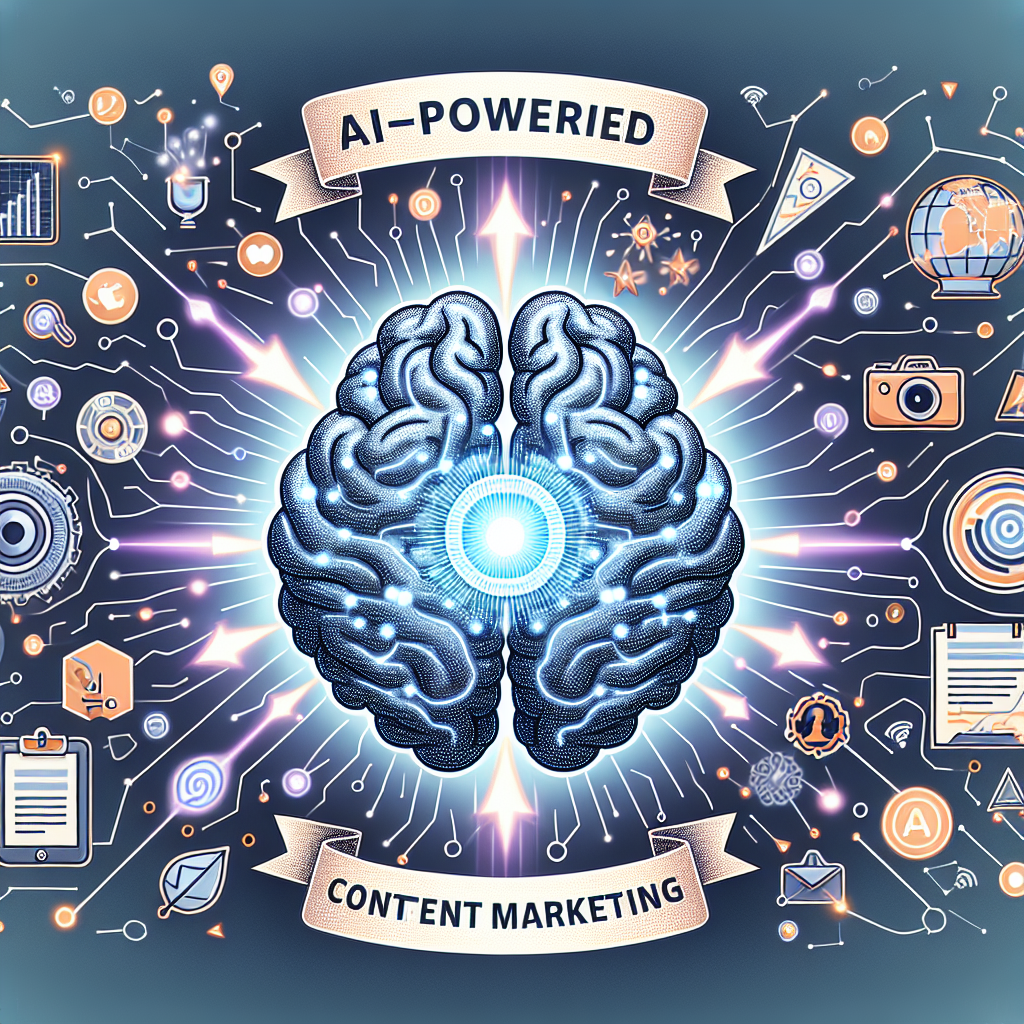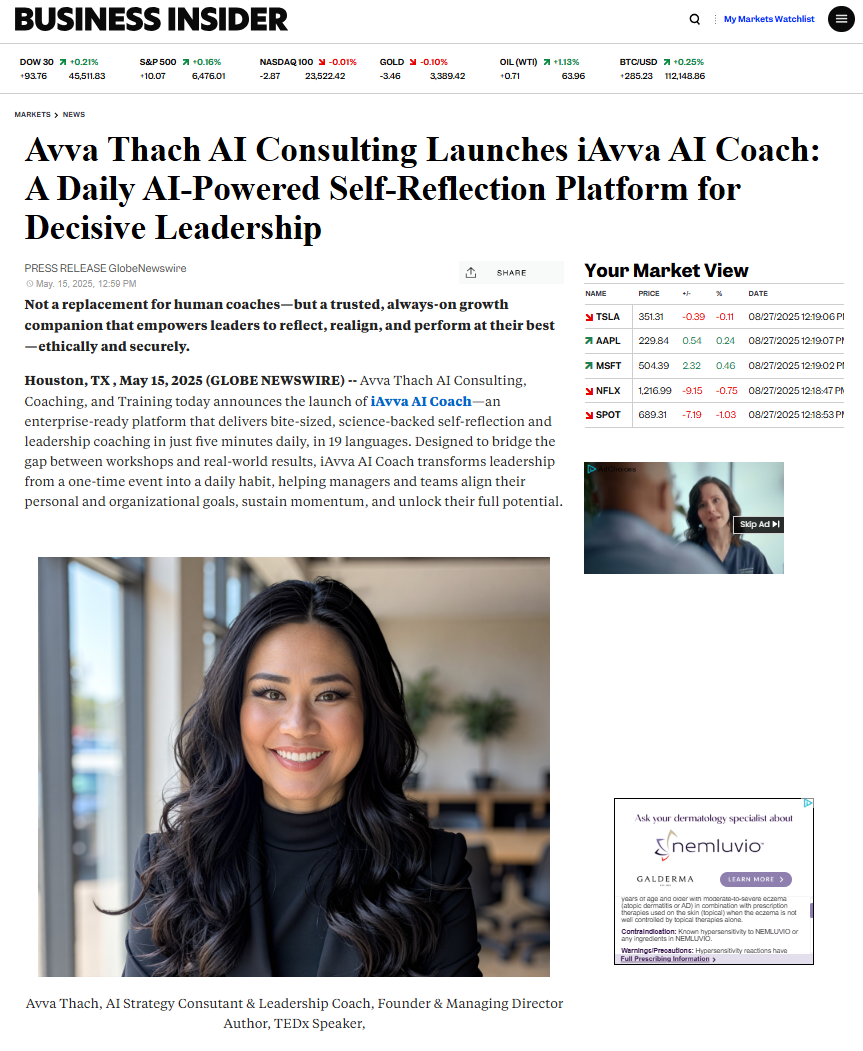Revolutionary Leadership Development: Combining Traditional Wisdom with AI Innovation
Revolutionary Leadership Development: Combining Traditional Wisdom with AI Innovation
Introduction
Welcome to the future of leadership training and development, where age-old wisdom meets cutting-edge technology. Picture this: a world where ancient leadership principles are seamlessly integrated with the latest advancements in artificial intelligence. Sounds like a sci-fi movie, right? But it’s not! It’s the new frontier in cultivating effective leaders.
As organizations grapple with rapid changes and complex challenges, the need for innovative approaches to leadership skills development has never been more critical. Traditional methods of leadership coaching and executive leadership training are evolving, giving way to dynamic strategies that leverage AI to enhance learning experiences.
So why should you care? Well, if you’re a senior leader or HR executive, understanding how to blend traditional wisdom with AI innovation can mean the difference between merely surviving in today’s market and thriving. This blog post will explore how we can harness both worlds to develop tomorrow’s leaders through tailored programs that meet the unique needs of your organization.
Key Insight: 68% of leaders recognize that integrating AI strategies with leadership coaching significantly boosts their transformation efforts.

Join us as we dive deeper into this revolutionary approach to corporate leadership development. From understanding core competencies to exploring transformational strategies, we’ll equip you with practical insights and effective leadership strategies that will empower your organization. Ready? Let’s get started!
The Need for Innovative Leadership Training and Development
In today’s fast-paced corporate jungle, the call for leadership training and development has never been louder. Traditional methods are being challenged as leaders grapple with a myriad of new challenges, from remote team dynamics to rapid technological advancements. So, why is innovative leadership training essential?
- Current challenges in leadership development: Many organizations are still clinging to outdated training models that fail to address the complexities of modern leadership. The rise of remote work has highlighted gaps in team leadership skills and adaptability.
- The role of AI in shaping leadership training: Artificial Intelligence is no longer just a buzzword; it’s a game changer. By leveraging AI-driven tools, companies can create personalized learning experiences that cater to individual strengths and weaknesses, making leadership coaching more effective than ever.
- Importance of blending traditional wisdom with modern techniques: While we can’t ignore the timeless principles of leadership, integrating these with innovative methods can lead to breakthroughs in how leaders engage and inspire their teams. Think of it as a recipe: the classic ingredients (traditional wisdom) combined with new spices (modern techniques) create a dish that’s both familiar and exciting.
Key Takeaway: To thrive in today’s environment, organizations must embrace innovative leadership techniques that blend traditional wisdom with cutting-edge technology. This means investing in customized leadership programs that prepare leaders for the unique challenges they face.
Understanding Leadership Skills Development
Leadership skills development is not just a buzzword; it’s the foundation of effective leadership. Think of it as building a superhero’s toolkit each skill is a gadget that helps leaders navigate the complexities of their roles.
To truly grasp the essence of leadership training and development, we need to break down the core components that make up effective leaders:
- Core competencies for effective leaders: These include strategic thinking, decision-making, and emotional intelligence. Each competency acts like a piece of armor, protecting leaders from the pitfalls of indecision and miscommunication.
- Identifying gaps in existing leadership skill sets: Even seasoned leaders can have blind spots. Regular assessments can help pinpoint areas needing improvement, ensuring that no leader is left behind in this fast-paced environment.
- The impact of emotional intelligence on leadership effectiveness: Emotional intelligence (EI) is like the secret sauce in a great recipe. Leaders who understand and manage their own emotions, as well as empathize with others, are often more successful in fostering team collaboration and morale.
Key Takeaway: Investing in leadership skills development not only enhances individual capabilities but also drives organizational success. Leaders equipped with advanced skills are better at adapting to change and inspiring their teams.
In today’s dynamic business landscape, where adaptability is key, developing future leaders through tailored programs becomes essential. This isn’t just about filling positions; it’s about cultivating a pipeline of talent ready to tackle tomorrow’s challenges.

Transformational Leadership Development Strategies
Transformational leadership is not just a buzzword; it’s a vital approach that empowers leaders to inspire and motivate their teams towards remarkable achievements. Think of it as the superhero version of leadership where leaders don capes (metaphorically, of course) to elevate their organizations and foster a culture of innovation.
Defining Transformational Leadership
At its core, transformational leadership focuses on creating significant change by enhancing the motivation, morale, and performance of followers. This style encourages leaders to connect with their teams on a deeper level, promoting an environment where everyone feels valued and inspired to contribute. In fact, research shows that organizations led by transformational leaders often experience higher employee satisfaction and productivity.
Key Strategies for Cultivating Transformational Leaders
- Empowerment through Delegation: Encourage leaders to delegate responsibilities effectively. This not only builds trust but also allows team members to develop their own leadership skills.
- Vision Sharing: Help leaders articulate a clear vision that resonates with their teams. A compelling vision acts like a North Star guiding everyone towards common goals.
- Continuous Learning: Promote ongoing education through leadership workshops and online courses. This ensures that leaders are equipped with the latest tools and strategies for effective management.
- Feedback Cultivation: Foster an open feedback culture where team members feel safe sharing ideas and concerns. This transparency can lead to innovative solutions and stronger team dynamics.
The Role of Mentoring and Coaching in Leadership Growth
No leader is an island! Mentoring and coaching are crucial components in developing future leaders. Here’s how these strategies can enhance leadership training and development:
- Mentorship Programs: Pair emerging leaders with seasoned professionals who can offer guidance, support, and real-world insights into effective leadership practices.
- Leadership Coaching: Invest in business leadership coaching that focuses on personal development for managers. Tailored coaching sessions can help refine advanced leadership skills needed for navigating complex organizational challenges.
- Cultivating Executive Presence: Through mentoring relationships, emerging leaders can learn how to cultivate executive presence an essential trait for influencing communication in leadership settings.
Takeaway: Transformational leadership development is all about fostering relationships, empowering teams, and embracing continuous growth. By integrating mentoring and coaching into your leadership training programs, you not only enhance individual capabilities but also strengthen the entire organization!
Integrating AI into Executive Leadership Training Programs
In the evolving landscape of leadership training and development, integrating AI is not just a trend; it’s a necessity. Think of it as adding a turbocharger to your leadership engine suddenly, you’re not just moving; you’re zooming!
- AI-driven assessments for personalized learning paths: Imagine receiving tailored recommendations based on your unique leadership style and growth areas. AI can analyze past performance data to create customized learning experiences, ensuring that every executive gets the right tools to enhance their leadership skills development.
- Utilizing data analytics to measure leadership effectiveness: Traditional feedback methods can feel like throwing darts blindfolded. With AI, organizations can leverage data analytics to track progress in real-time, providing insights into team dynamics and individual contributions. This helps in refining management training programs and pinpointing exactly where leaders excel or need improvement.
- The future of virtual team management strategies for leaders in the digital age: As remote work becomes the norm, leaders must master virtual environments. AI tools can facilitate engaging online leadership workshops and seminars that foster connection, collaboration, and effective communication across diverse teams. Think of it as having a personal assistant who ensures you never miss a beat whether in person or through a screen.
Key Takeaway: Embracing AI in executive leadership training not only enhances the learning experience but also equips leaders with advanced skills necessary for navigating today’s complex business landscapes.

The integration of AI into leadership training is about more than just technology; it’s about reshaping how we think about developing future leaders. By combining innovative leadership techniques with traditional coaching methods, organizations can cultivate leaders who are not only effective but also adaptable in an ever-changing world.
Building Strong Leaders Through Customized Leadership Programs
In today’s fast-paced corporate jungle, cookie-cutter leadership training and development just won’t cut it anymore. Organizations are realizing that one-size-fits-all solutions do little more than fill seats in a workshop. Instead, they are pivoting towards customized leadership programs that truly resonate with their unique needs and challenges.
So, why should you invest in tailored training solutions? Here are a few compelling reasons:
- Alignment with Organizational Goals: Customized programs ensure that the skills being developed align directly with your organizational objectives. This means leaders are not just learning; they’re acquiring skills that will drive your business forward.
- Enhanced Engagement: When training feels relevant, participants are more engaged. Tailored programs often incorporate real-world scenarios specific to your industry, making the learning experience not just informative but also exciting.
- Diverse Learning Approaches: People learn differently. Some thrive in hands-on workshops, while others prefer online courses or coaching sessions. A customized program can mix and match these approaches to cater to various learning styles.
Now let’s dive into how you can design high-impact leadership training initiatives:
- Conduct a Needs Assessment: Start by identifying the specific leadership challenges within your organization. Are there gaps in strategic leadership skills? Do managers struggle with emotional intelligence? Pinpointing these areas will guide your program’s focus.
- Create Interactive Content: Use dynamic team-building exercises and innovative leadership techniques to keep participants engaged. Think of role-playing scenarios or case studies that mirror real-life challenges faced by your teams.
- Incorporate Feedback Loops: Continuous improvement is key! Regularly solicit feedback from participants to refine the program and make necessary adjustments for future cohorts.
Takeaway:
A customized approach to leadership training not only enhances individual capabilities but also strengthens team dynamics and aligns with overarching business goals. By investing in tailored solutions, you’re not just building strong leaders; you’re cultivating a culture of continuous improvement and adaptability.
The Role of Emotional Intelligence in Leadership Development
Emotional intelligence (EI) is the secret sauce in the recipe for effective leadership. Think of it as the GPS guiding leaders through the often turbulent waters of team dynamics and organizational challenges. Leaders with high emotional intelligence can navigate their own emotions and those of their team members, making them more adept at fostering collaboration and driving results.
So, what exactly makes emotional intelligence a game-changer in leadership training and development? Here are a few key reasons:
- Enhanced Self-Awareness: Leaders who understand their emotions can manage them better, leading to improved decision-making. This self-awareness is foundational in executive leadership training.
- Improved Communication: EI enables leaders to communicate effectively, ensuring that messages resonate with diverse audiences. This is crucial for developing team leadership skills.
- Conflict Resolution: High EI helps leaders navigate conflicts with empathy and understanding, turning potential disputes into opportunities for growth.
- Stronger Relationships: By cultivating trust and rapport, emotionally intelligent leaders create an environment where team members feel valued a vital aspect of any successful leadership workshop.
Techniques to Cultivate Emotional Intelligence Among Leaders
Cultivating emotional intelligence isn’t just about reading self-help books (though those can help!). Here are some practical strategies that organizations can implement within their corporate leadership development programs:
- Self-Reflection Exercises: Encourage leaders to regularly reflect on their emotional responses to various situations. This could be through journaling or guided discussions during leadership seminars.
- Role-Playing Scenarios: Use role-playing exercises in leadership workshops to simulate challenging situations where emotional intelligence is key. This hands-on approach makes learning engaging and impactful.
- Mentoring Programs: Pairing emerging leaders with seasoned mentors who exemplify high EI can provide invaluable insights into effective leadership strategies.
- Feedback Loops: Implement regular feedback sessions where team members can share their perspectives on a leader’s emotional interactions. This creates a culture of openness and continuous improvement.
The bottom line? In today’s fast-paced business environment, developing future leaders requires more than just technical skills; it necessitates a deep understanding of human emotions. By integrating emotional intelligence into your leadership training programs, you’re not just building stronger leaders; you’re cultivating a thriving workplace culture.

Facilitating Change Through Innovative Leadership Techniques
In the ever-evolving landscape of business, facilitating change isn’t just a nice-to-have skill for leaders; it’s a necessity. Think of it like teaching an old dog new tricks it can be done, but it requires patience, creativity, and the right techniques. So how do we equip our leaders to drive this change effectively? Let’s dive into some innovative leadership techniques that can transform your organization.
- Creating a culture of adaptability within organizations: This is akin to nurturing a garden where different plants thrive together. Leaders must cultivate an environment that encourages flexibility and openness to new ideas. By fostering psychological safety, team members feel empowered to share their thoughts without fear of criticism.
- Dynamic team-building exercises for leaders: Forget the classic trust falls; we’re talking about activities that promote collaboration and problem-solving in real-time. For instance, using gamification techniques can make learning fun while reinforcing team leadership skills. Imagine leaders engaging in a simulated crisis where they must work together to navigate challenges now that’s impactful!
- Leveraging technology to facilitate change initiatives: In today’s digital age, technology is your best friend. Tools like AI-driven analytics can help leaders understand team dynamics and employee engagement levels at a granular level. This data-driven approach allows for tailored leadership coaching that meets the specific needs of individuals and teams.
Key Takeaway: Innovative leadership techniques not only enhance adaptability but also promote cohesive teamwork and data-informed decision-making.
The journey towards effective change management through innovative leadership techniques is ongoing. By implementing these strategies, organizations can build strong leaders who are equipped to navigate complexities with confidence and clarity.









Leave a Reply